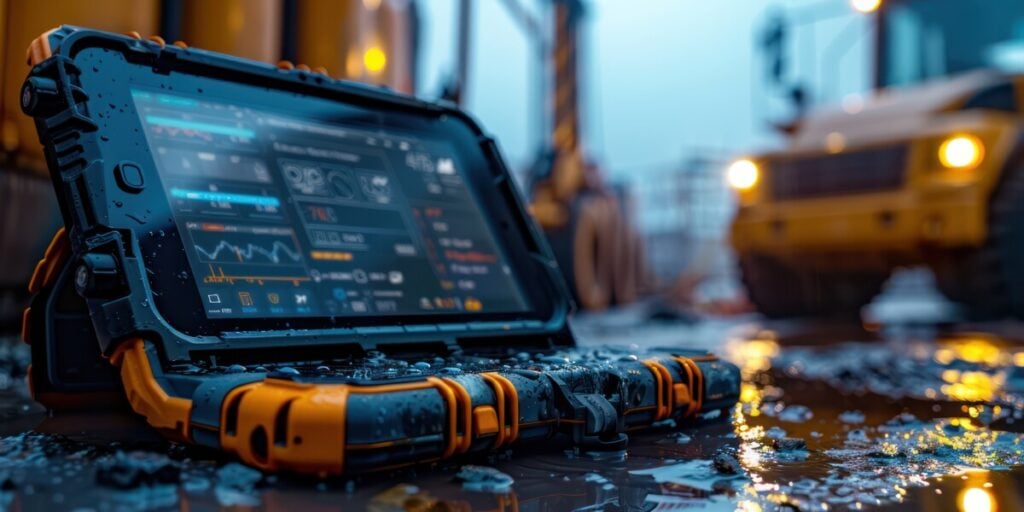Technology has come a long way in making powerful computing accessible in diverse environments. While most of us use standard devices for day-to-day activities, certain fields—like industrial work, military operations, and scientific research—require equipment that can withstand extreme conditions. From withstanding harsh weather to operating under physical stress, rugged monitors are designed to deliver reliable performance no matter the environment. Let’s dive into the unique features of rugged monitors, why they’re essential for demanding applications, and how they continue to evolve with new technologies.

The Rise of Rugged Monitors in Extreme Tech
Rugged monitors are not your typical display screens; they’re built to withstand environmental extremes and perform in the toughest conditions. Whether for outdoor use in challenging weather, on construction sites, or in field research settings, these monitors are engineered to handle it all. According to a 2021 report by MarketsandMarkets, the rugged display market is projected to grow at a compound annual growth rate of 5.3%, reaching $11.5 billion by 2025, fueled by increased demand across various sectors, from military to automotive industries.
In fields where access to durable technology is a necessity, rugged monitors have carved out a crucial niche by providing resilient and reliable displays in places where standard devices simply wouldn’t survive.
Key Features of Rugged Monitors
Rugged monitors are designed with unique features that set them apart from consumer-grade displays. Here’s what makes these monitors indispensable in extreme environments:
- Enhanced Durability: Built with reinforced frames, rugged monitors are often resistant to shocks, vibrations, and drops.
- Water and Dust Resistance: Many rugged displays are certified with IP ratings, ensuring they can withstand dust, water, and other contaminants.
- Wide Operating Temperature Range: These monitors are engineered to function in temperatures from below freezing to extreme heat.
- Readable in Bright Sunlight: Specialized anti-glare coatings and higher brightness levels ensure visibility even in direct sunlight.
- Longer Lifespan: Constructed from robust materials, rugged monitors tend to have a longer operational life than consumer-grade screens.
Each of these features contributes to a monitor’s resilience, allowing it to meet the demands of high-risk and harsh environments, from offshore rigs to aerospace applications.
Rugged Monitors in the Field: Real-World Applications
Rugged monitors have transformed the way industries operate in challenging conditions, ensuring consistent performance and reliability. Below are some industries and scenarios where rugged monitors are making a significant impact:
1. Military and Defense
In military and defense settings, rugged monitors are critical for secure communications, field operations, and real-time data monitoring. These displays are used in vehicles, mobile command centers, and even mounted on military drones. Their robust construction ensures they can handle the physical demands of the battlefield, while high-security encryption protects sensitive data.
2. Industrial and Construction Sites
Construction sites and industrial facilities are notoriously tough on equipment. Dust, moisture, heavy machinery vibrations, and extreme temperatures are just a few of the hazards. Rugged monitors are used to track project progress, analyze site conditions, and even operate heavy machinery through remote monitoring systems.
3. Healthcare in Remote Locations
For healthcare professionals working in remote or under-resourced areas, rugged monitors provide reliable access to medical data, imaging, and patient records. These devices can handle the rigors of travel and remote environments, ensuring doctors have access to critical information without the risk of equipment failure.
4. Scientific Research Expeditions
Whether researchers are studying marine biology on a ship or monitoring volcanic activity on a mountainside, they require reliable equipment to collect and analyze data. Rugged monitors enable real-time data collection in these environments, where access to regular equipment would be impossible.
5. Automotive and Field Services
In the automotive industry and other field services, rugged monitors are used for diagnostics, tracking, and maintenance. They provide technicians with access to complex data on the go, making it easier to troubleshoot issues in real-time and keep machinery in optimal condition.
Rugged monitors offer these industries a level of durability and performance that ensures consistent operation, even in the most challenging conditions.
Key Considerations When Choosing a Rugged Monitor
Selecting the right rugged monitor is essential for ensuring it meets the specific needs of an application. Here are some factors to consider:
- Screen Size and Resolution: The ideal screen size depends on the application—field operators may prefer compact screens, while larger displays are suited for command centers.
- Brightness Levels: For outdoor use, look for monitors with high brightness (often measured in nits) to ensure readability in sunlight.
- IP and MIL-STD Ratings: IP ratings (e.g., IP65, IP67) indicate water and dust resistance, while MIL-STD ratings (like MIL-STD-810) denote resistance to shocks, drops, and temperature extremes.
- Connectivity Options: From HDMI and USB to wireless connectivity, having the right ports and connectivity options is crucial for seamless integration.
- Power Efficiency: In remote locations where power sources may be limited, look for monitors that operate efficiently, even at high brightness levels.
Taking these specifications into account helps in choosing a rugged monitor that aligns with operational requirements and environmental conditions.
The Role of Rugged Monitors in the Future of Extreme Tech
As technology continues to advance, rugged monitors are likely to integrate with emerging tech trends, enhancing their performance and adaptability. Here are some innovations that could shape the future of rugged monitors:
- 5G Integration: As 5G connectivity expands, rugged monitors with built-in 5G capabilities will enable faster data transmission, enhancing remote operations and real-time monitoring.
- AI and Machine Learning: Monitors that can incorporate AI to assess environmental factors or adjust display settings based on real-time feedback will add a new layer of interactivity.
- Extended Battery Life: Future rugged monitors will likely feature improved battery technology, allowing for extended operation in remote areas without frequent recharging.
- Flexible and Bendable Displays: With advancements in flexible display technology, rugged monitors may evolve to become more portable and adaptable to irregular surfaces.
These future developments will allow rugged monitors to meet even more specialized requirements, making them indispensable in an expanding range of fields.
Choosing the Right Provider for Rugged Monitors
Finding a reputable provider for rugged monitors is just as important as choosing the right specs. Key qualities to look for in a provider include:
- Proven Track Record: Look for providers with experience in the rugged tech industry, especially those with products used by military or industrial clients.
- Customizable Options: Some companies offer custom rugged monitor solutions, allowing you to select specific features or specifications based on your needs.
- Warranty and Support: A robust warranty and dedicated support team can make a significant difference in case of issues, ensuring minimal downtime.
- Certifications: Ensure that the provider’s products meet industry certifications for rugged technology, such as IP and MIL-STD ratings.
Choosing a reliable provider ensures that your rugged monitors are built to last, even under demanding conditions.
Conclusion
From military bases to scientific expeditions, rugged monitors play a pivotal role in enabling technology to function in extreme conditions. Their durability, high-performance features, and adaptability make them essential for any field where traditional monitors would fall short. As these monitors continue to evolve with advancements like 5G connectivity, AI integration, and flexible displays, their applications will only expand, meeting the needs of an even broader range of industries.
Rugged monitors are no longer niche equipment; they are integral to modern operations in extreme environments. By choosing the right features and working with a reputable provider, organizations can leverage the full potential of rugged monitors, achieving consistent, high-quality performance no matter the setting.
Caroline is doing her graduation in IT from the University of South California but keens to work as a freelance blogger. She loves to write on the latest information about IoT, technology, and business. She has innovative ideas and shares her experience with her readers.






